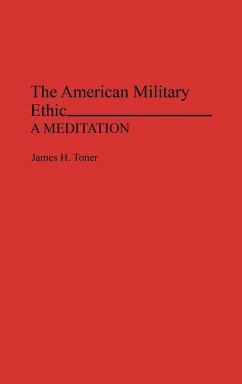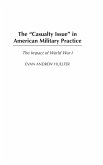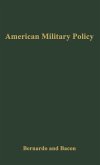This is a book about military professionals. It outlines the personal reflections of a U.S. Army lieutenant/captain on active duty in Europe during the Vietnam War. There, the enemy was drugs, boredom, racism, and illiteracy. Few, if any, books concern the Vietnam-era veteran. The American Military Ethic tells the story of one such veteran--of basic combat training, of Infantry OCS, and of airborne school--who had charge of a nuclear weapons unit in Europe during the late 1960s and early 1970s. First person accounts are blended with a more traditional scholarly examination of professional military training for junior and senior officers (ROTC and the war colleges) and of the American military ethic itself. Toner argues that the American military ethic has undergone a deserved rejuvenation. The ethic itself--which is the source of true professionalism--has a sacred character, for it involves its professors in a solemn oath: to preserve and to protect the republic. That mission can lead officers to the ultimate test of leadership: whether to accomplish the mission or to safeguard the people for whom the leader is responsible. Still, this book is not of the guts-and-glory variety. It is a study in practical, real leadership; it examines leadership problems of the type real junior officers confront daily; and it explores the kinds of ethical problems real senior officers frequently confront. Its thesis is this: A professional military ethic depends, ultimately, upon the formation of responsible character in (and by) its leaders; for that, sound education is a necessity. ROTC and senior professional military education depend, therefore, upon challenging, serious, and substantial academic experiences. In the end, the American military ethic is a function of the wisdom and virtue learned and taught by its officers. This volume will be of great interest to active duty military professionals, students of military history, and veterans of the Vietnam era.
Hinweis: Dieser Artikel kann nur an eine deutsche Lieferadresse ausgeliefert werden.
Hinweis: Dieser Artikel kann nur an eine deutsche Lieferadresse ausgeliefert werden.








